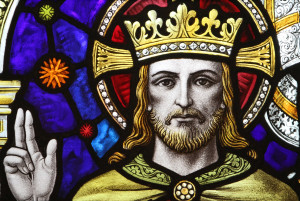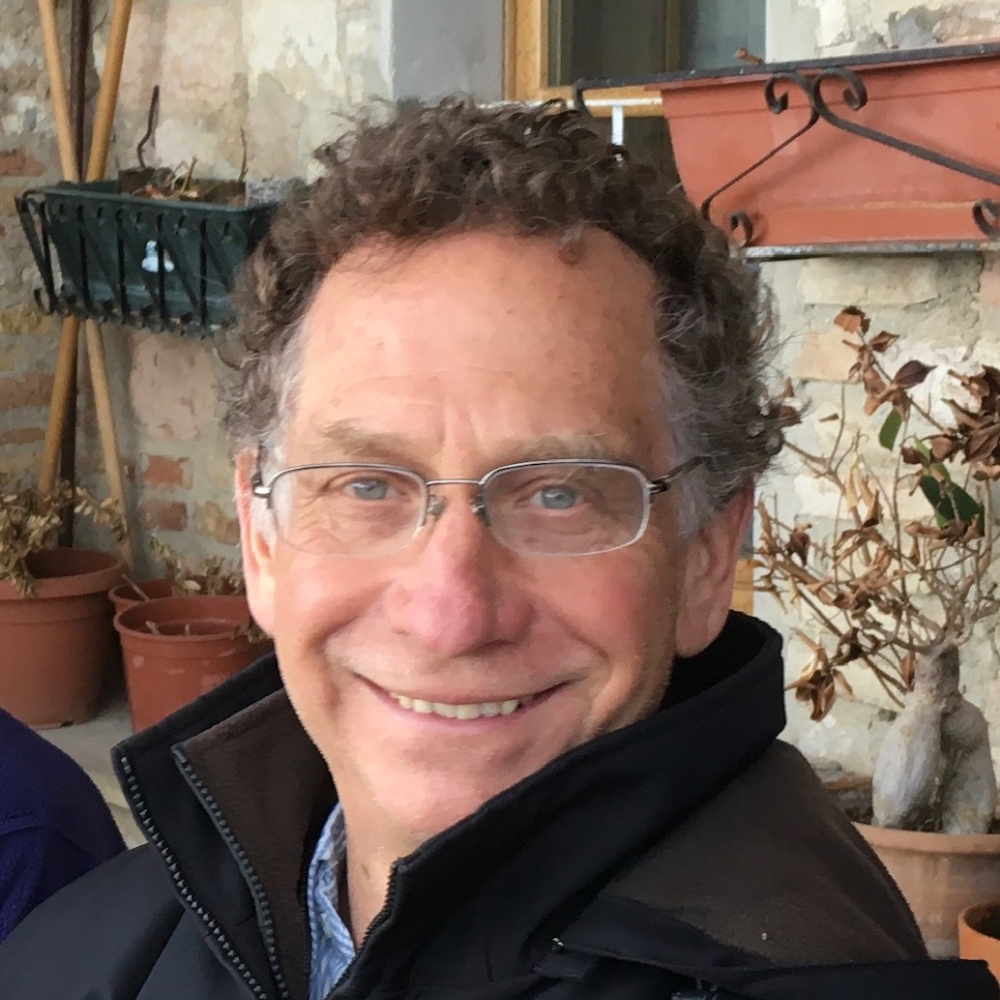The Pope reflected on Christ’s role in history during a homily for the Feast of Christ the King on November 25 in Rome. Many seek to de-throne Christ, but he does now and will forever rule, the Pope said.
Who is our “king”? Who is the “ruler” of our lives? Whose commands bind us? Whose words govern our lives? Whose will do we bow to? Is it some secular ruler? Or is it, in the end, Christ? And if it is Christ, what does that mean?
“Christ the King” is a title of Jesus based on several passages of Scripture. The name is found in various forms in scripture: “King” (John 18:36-37), “King eternal” (1 Timothy 1:17), “King of Israel” (John 1:49, Mt. 27:42, Mark 15:32), “Ruler of the kings of the Earth” (Rev. 1:5).

A stained-glass window of Jesus wearing a crown from St. Joseph’s Seminary in Yonkers, New York. The feast of Christ the King was celebrated on November 25 this year.
(CNS photo/Gregory A. Shemitz)
The Church celebrates a Feast for “Christ the King” on the final Sunday of the liturgical year (before a new year begins with the first Sunday of Advent). This feast was established 87 years ago, in 1925, by Pope Pius XI in the encyclical Quas Primas. Pius instituted the feast to remind Christians their allegiance was to their spiritual ruler in heaven as opposed to any earthly ruler (in Italy at that time, the ruler was Benito Mussolini).
This year, on November 25, Pope Benedict XVI gave a homily on “Christ the King” which offered profound insight into the meaning of Christ’s rule. Instead of bowing to the “kings” of this earth, or even making ourselves into “little kings” by following our own wills to the exclusion of God’s will, we should follow Christ the true king, Benedict said.
“In this final Sunday of the liturgical year, the Church invites us to celebrate the Lord Jesus as King of the Universe,” Pope Benedict began. “She calls us to look to the future, or more properly into the depths, to the ultimate goal of history, which will be the definitive and eternal kingdom of Christ…”
So we begin with the certainty that, in the end, the kingdom of Christ will come, definitively, eternally. But until then?
“Jesus clearly had no political ambitions,” Benedict continued. “After the multiplication of the loaves, the people, enthralled by the miracle, wanted to take him away and make him their king, in order to overthrow the power of Rome and thus establish a new political kingdom… But Jesus knows that God’s kingdom is of a completely different kind; it is not built on arms and violence.”
Benedict went on: “In the Passion narrative, we see how even the disciples… were still thinking of a political kingdom, brought about also by force. In Gethsemane, Peter had unsheathed his sword and began to fight, but Jesus stopped him. He does not wish to be defended by arms, but to accomplish the Father’s will to the end… to establish his kingdom not by armed conflict, but by the apparent weakness of life-giving love. The kingdom of God is a kingdom utterly different from earthly kingdoms.”
The Pope then discussed the passage from Daniel which foretells the power of the messiah: “Behold, with the clouds of heaven there came one like a son of man… To him was given dominion and glory and kingdom, that all peoples, nations and languages should serve him…” (7:13-14).
Benedict said: “These words present a king who reigns from sea to sea, to the very ends of the earth, possessed of an absolute power which will never be destroyed. This vision of the prophet, a messianic vision, is made clear and brought to fulfillment in Christ: the power of the true Messiah, the power which will never pass away or be destroyed, is not the power of the kingdoms of the earth which rise and fall, but the power of truth and love. In this way we understand how the kingship proclaimed by Jesus in the parables and openly and explicitly revealed before the Roman procurator, is the kingship of truth, the one which gives all things their light and grandeur.”
So who is our king? It is Christ. And what must we do? We must bear witness to the truth, in all the events of our daily life. In this way, we make present here and now that eternal kingdom which is to come, and will come.
Pope Benedict said it clearly, telling the six cardinals he had just created: “Bear witness to the kingdom of God, to the truth. This means working to bring out ever more clearly the priority of God and his will over the interests of the world and its powers.” (And over our own small wills, as well.)
Then the Pope ended his homily: “Become imitators of Jesus, who, before Pilate, in the humiliating scene described by the Gospel, manifested his glory: that of loving to the utmost, giving his own life for those whom he loves. This is the revelation of the kingdom of Jesus. And for this reason, with one heart and one soul, let us pray: Adveniat regnum tuum – Thy kingdom come. Amen.”
This bears repeating: “become imitators of Jesus”… by “loving to the utmost”… “this is the revelation of”… “the Kingdom of Jesus.” Words to meditate on this Christmas.



Facebook Comments